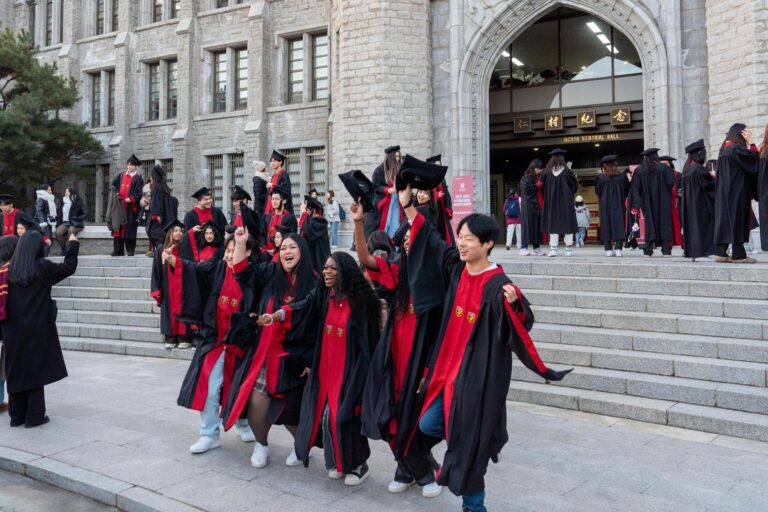After securing the top spot in The Korea Times’ K-Universities Global Excellence Rankings 2026, Korea University is now focusing on the next phase of globalization: developing a new model of higher education that blends international standards with uniquely Korean values.
Song Sang-kee, vice president for international affairs at Korea University.
“The future of universities remains uncertain, as the rapid rise of artificial intelligence threatens to make traditional academic systems quickly outdated,” said Song Sang-kee, vice president for international affairs at Korea University, in a written interview with The Korea Times. “In this changing environment, our task is to rediscover and redesign the unique experiences that only a university can offer.”
Confronted with demographic decline and swift technological shifts, higher education institutions now view globalization as an imperative rather than an option.
Korea University views globalization not merely as expanding overseas exchanges, but as an innovation strategy embedded across education, research and social value creation.
The university is expanding its cooperation in research with leading universities worldwide, moving beyond paper collaborations to real partnerships through faculty exchanges, joint experiments and data sharing. Additionally, the university runs the K-Club, a global research network linking 150 scholars from 63 countries to collaborate on solutions to shared global challenges.
On the education side, programs such as the International Summer and Winter Campus, the Korean Language Center and global internships help students develop international perspectives and collaborative skills from the undergraduate level.
Song also emphasized that as Korea’s soft power grows globally, Korea University is emerging as a model for higher education internationalization.
“At the core of our strategy is people-centered globalization — creating an environment where students and researchers can truly grow and realize their potential,” he said.
Korea University defines its next step as “glocalization” by integrating global standards with Korean values. The strategy aims to uphold academic excellence while fostering deeper cultural understanding and a strong sense of identity.
To advance that vision, the university is increasing its recruitment of foreign faculty, set to rise from 83 to 146 by 2030, while strengthening housing and relocation support. It also plans to introduce an AI-powered real-time lecture translation system next spring and expand the number of degree programs taught in English to enhance accessibility for international students.
“We see the university as a place where students grow, connect and learn together as members of a global community, gaining experiences that cannot be replicated elsewhere,” Song said.
He added that Korea University now plans to expand its globalization efforts beyond academic curricula to every aspect of campus life, including extracurricular activities, internships and career development.
“Our goal is to build an environment where students from diverse cultures can learn and thrive throughout their entire university experience,” he said.
Song noted that universities should act as test beds for proactive change, yet many in Korea struggle to pursue bold initiatives and innovative research as they grapple with increasing pressure to remain competitive.
“In this environment, stronger support is needed to help universities preserve and enhance their core academic values,” he said.
Images are for reference only.Images and contents gathered automatic from google or 3rd party sources.All rights on the images and contents are with their legal original owners.

